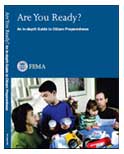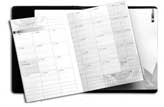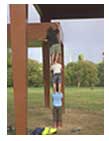Pandemic Mindset

Planning is not enough.
Planning is important. The importance of planning for traditional hazards, such as flooding, hurricanes and fires, is well understood. For traditional hazards, we recommend each family obtain a copy of the FEMA publication, "Are You Ready." This can be obtained at your local emergency management office or by calling FEMA publications at 800-480-2520. This document contains an excellent discussion of basic preparedness and developing an emergency plan.
Planning for pandemic flu is important for government and private sector agencies. Their continued functioning is necessary to maintain order and the critical infrastructure.
Planning for pandemic flu is important for families. By stocking three months worth of supplies, families can ensure their own survival during a time of disease and disruption.
 Planning is not enough. There are situations, however, when following a plan will keep you from even considering other options or solutions. You need a mindset that allows you to step back and look at the larger picture. This is especially the case with pandemic planning. There are just too many variables, too many possible outcomes. The duration of this disaster is not three days – it may be up to two years. You must not only plan for a range of possible scenarios from a mild pandemic to a devastating one, you must carry out your plans and make your preparations while there is still time, before a pandemic begins. You need more than a stockpile of supplies. You need to be mentally prepared, too.
Planning is not enough. There are situations, however, when following a plan will keep you from even considering other options or solutions. You need a mindset that allows you to step back and look at the larger picture. This is especially the case with pandemic planning. There are just too many variables, too many possible outcomes. The duration of this disaster is not three days – it may be up to two years. You must not only plan for a range of possible scenarios from a mild pandemic to a devastating one, you must carry out your plans and make your preparations while there is still time, before a pandemic begins. You need more than a stockpile of supplies. You need to be mentally prepared, too.
The following is adapted from the work of complex system researchers Steve Barth and Dave Pollard, who have looked at large-scale disasters. A pandemic preparedness mindset has five key ingredients in a prescription for how to figure out what to do:
- Establish trust: We are all part of a larger community. If you are with family members who know and love each other, trust is not a problem. But what if you don't know or don't get along with, your neighbors? It's going to be iffy whether in an emergency, you will work with them, or even know what each of you is capable of doing (and what each of you urgently needs) so that you can work together effectively.

- Learn to improvise: In some ways improvisation is the opposite of planning. It's about staying resilient, adapting to what others do, and trusting your instincts. We see this as neighbors help neighbors when disaster strikes.
- Improve attention skills: We need to study and learn about how nature and cultures deal with emergencies and cope with them. We need to be able to draw on this knowledge and focus our attention on what needs to be done. That means listening, seeing what's really happening, noticing and communicating what's urgent and what's important, and keeping everything in perspective.
 Improve collaboration skills: We are so used to divvying up work and doing almost everything individually that we rarely really collaborate in real time. We need to learn the things that we can do together that we cannot do, no matter how well coordinated, separately. Teamwork is important.
Improve collaboration skills: We are so used to divvying up work and doing almost everything individually that we rarely really collaborate in real time. We need to learn the things that we can do together that we cannot do, no matter how well coordinated, separately. Teamwork is important. - Practice: Those with the foresight to practice essential preparedness skills will be much better equipped when the next emergency occurs. Communities that regularly practice what to do, over and over, are much more ready. There is no substitute for exercise.